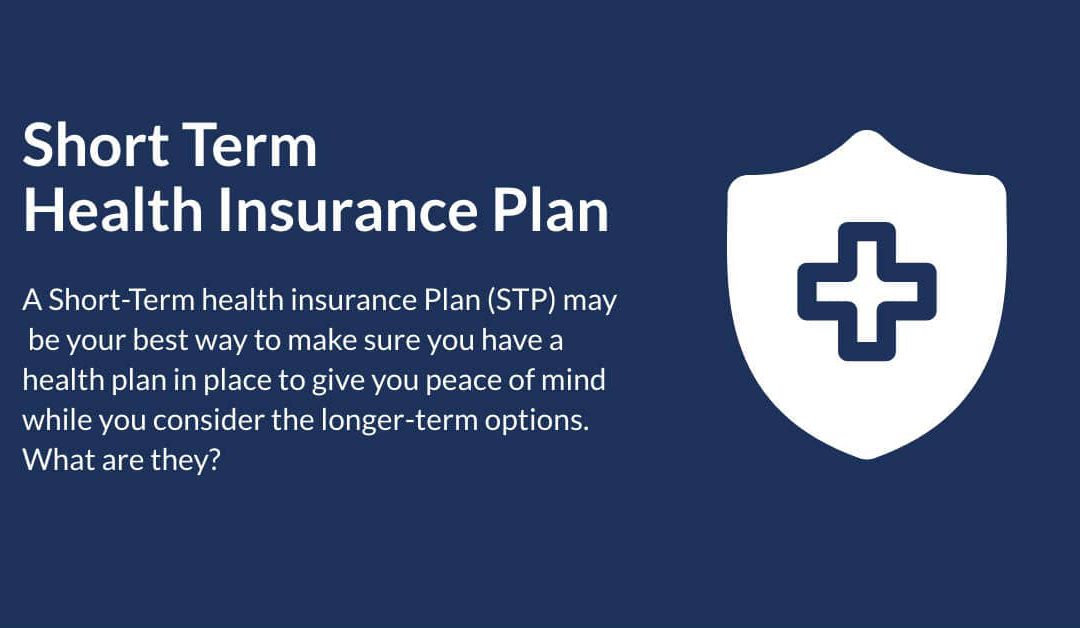Contents
Short term health insurance. Do I have a choice? What are my options?
If you are reading this article, you are probably without health insurance coverage. Possibly this is by choice, perhaps through oversight, but most likely because you have lost your job-related coverage. You are not alone. Ten million million people may lose their employment-related health insurance due to the Covid-19 pandemic.
A Short-Term health insurance Plan (STP) may be your best way to make sure you have a health plan in place to give you peace of mind while you consider the longer-term options. What are they?
Well, it depends on your circumstances. By far, the most likely is that you have lost your employer-related insurances. We look at that first. Then we will examine the options open to you if you do not currently have the Affordable Care Act (ACA) compliant health insurance coverage (nicknamed Obamacare), whether as a matter of choice or oversight. We always encourage you to consult a qualified independent insurance agent.
Lost your health insurance coverage due to the COVID-19 pandemic?
There are several ways to ensure your continued health insurance coverage.
- Under all circumstances, if you lose employment-related coverage, you are entitled to a ‘personal’ Special Enrollment Period (SEP). This 60-day window from the ‘event’ to enroll in a private plan (or revise an existing plan). You will have the benefit of premium tax relief and options about the extent of your coverage. You may select a less expensive plan, which leaves you free to upgrade during a future Open Enrollment (OE), or if you have the opportunity for another SEP (See our blog ‘Lost your job due to Coronavirus?’)
- You may wish to continue with your existing (employer-sponsored) plan. You can do this under the Consolidated Omnibus Budget Reconciliation Act (more conveniently known as COBRA) See our article ‘SIGN UP FOR COBRA’
- If another member of your family has or is entitled to employment-related coverage, consider joining their plan. But if your plan covered dependents, they may not be covered on an alternative plan
- While you are unemployed, you may have Medicaid (subject to household income limits and your state regulations) (SEE our article Health Insurance for the unemployed).
You do not have ACA compliant coverage by choice or by oversight?
In both cases, you have options. Let us first take the case of OVERSIGHT. Your first opportunity to correct the situation will be the next open enrollment (November 1st, 2020, for the year 2021) unless you have experienced a ‘qualifying event’ which would entitle you to an SEP (see our article Special enrollment).
If you do not qualify for an SEP, you can take out a short-term plan (STP) to cover the interval before your next Open Enrolment Opportunity. STPs are generally an expensive option compared with the same terms as an ACA compliant equivalent. Although moderated to some extent by your state, they do not guarantee the ten essential benefits of the ACA compliant plans, nor do they qualify for premium tax relief. (Suggest 10 Health Services sidebar).
There are sound reasons for selecting Short Term Health Insurance. As the name implies, they are short term. Short term is defined as less than a year (up to 364 days), though some states limit plans to 90 days and others do not allow them. Where they are available, you can renew for up to 36 months.
They are often marketed as the ‘cheapest’ health insurance because the premiums may be relatively low. Sometimes, an STP may be the most affordable option, but there will be drawbacks. Usually, STP’s exclude pre-existing conditions. And STP’s may not cover preventive care, maternity care, and out-patient prescriptions. Claims may be capped, resulting in high out of pocket expenses.
For some individuals and dependents, these limitations are more than offset by lower premiums or the protection offered by short-term coverage while assessing the longer-term prospects.
Not all states allow short-term plans (Check the TrueCoverage Website for YOUR STATE, includes the TOP FIVE INSURERS), nor do all health insurers offer them. Where they do exist, they provide valuable alternatives to ACA-compliant plans but take advice from a qualified independent health insurance agent. Your agent will be familiar with your state regulations, circumstances, and the available health insurance plans. Their advice is free and unbiased. Their concern will be for you to have the health insurance you need, that it is affordable and offers you ‘best value.’
Photo by Olya Kobruseva from Pexels

